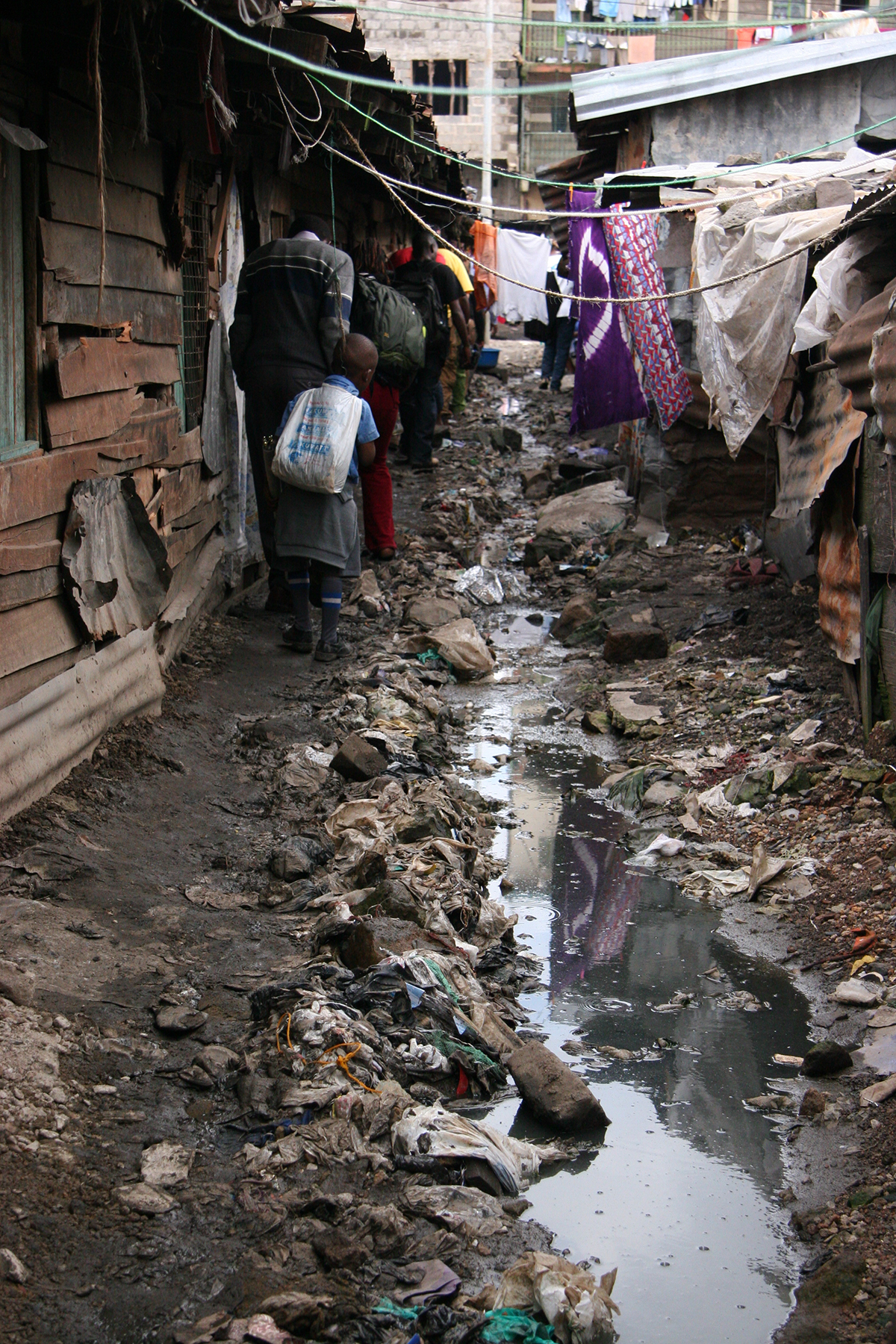In light of UN World Toilet Day last month and Human Rights Day recently, I wish to shift the locus of my examination of water's political dimensions to a rather different but equally pressing water-related issue: sanitation. There is no denying that water and sanitation are cognate sectors. But until recently, sanitation has remained somewhat of an after-thought - if considered at all (George, 2008) - within urban water provision, which is particularly troubling for the rapidly urbanising contemporary African cities and associated proliferation of unplanned settlements often disconnected from formal infrastructures. Using examples I found most interesting, this post will explore how urban sanitation is inherently political, and assess how best sanitation users and providers can navigate the complexities and politics of sanitation provision.
Realities of poo(r) sanitation facilities
The value of readily accessible urban sanitation, like any other form of infrastructure, is only truly realised when it breaks down or is taken away. This is perhaps most strikingly manifested in Cape Town's 2013 'poo wars', where demonstrators threw human excrement on the City Hall's steps as a form of protest against the state's repeated inability to provide functional and accessible toilet systems for the city's townships and attempts at 'fixing' the provision shortfalls through portable toilets and/or flushing toilets that are not enclosed. Not only does this provoke the 'irony of defecation' in that it is a private business, but has far-reaching public and political repercussions, the 'poo wars' have rendered visible the politics of (dys)functional urban sanitation regimes.
Cape Town authorities' provision shortcomings raises critical questions: whose responsibility is it to ensure adequate sanitation needs are met, and is the default top-down provision model the best way to achieve this?
 |
| Figure 1: When the often taken-for-granted and overlooked dimension of adequate sanitation goes wrong, it exposes fragile ties between providers and users that is deeply entangled in politics (Source). |
Going private
In Nairobi's Mathare settlement, private enterprises have spearheaded a movement of off-grid devices as an alternative to state-provided infrastructure (Thieme, 2015). IkoToilets have sought to fill the sanitation gap where the state has failed to service, similar to the townships of Cape Town, thereby turning the simple provision of toilets and clean water into a profit-making opportunity for enterprises. These devices, built to 'conventional' flushing toilet standards seen in the 'Global North', present noticeably improved sanitation hardware infrastructure and technology for Mathare that has long lacked adequate, equitably distributed, and accessible sanitation infrastructure.
 |
| Figure 2: Without formal sanitation infrastructure, Mathare's residents often had to traverse long distances through alleyways like this (top; source) to reach pit latrines or other temporary facilities, while private sector solutions like IkoToilets present a promising solution, at least on paper (bottom; source). |
But despite IkoToilet's superior hardware quality and expertise, they struggled to negotiate appropriate plots of land, resulting in toilets built wherever financially and politically possible - rather than where they are most needed. The Kosovo facility for example, was built near a popular open-defecation location in Mathare and, coupled with little effort to promote the benefits and proper usage of IkoToilets to residents, resulted in the facility being largely neglected or used improperly.
.jpg/800px-Ikotoilet_in_Kosovo-Mathare_(6605633393).jpg) |
| Figure 3: IkoToilet in Kosovo, Mathare, which has suffered from poor community awareness of its proper use leading to poor utilisation and upkeep (Source). |
Best way forward?
IkoToilet's efforts highlight how the private sector alone cannot solve the 'sanitation crisis': as important as the actual provisioning of functioning toilets (the hardware) are, they must be accompanied by appropriate software infrastructure. This includes ongoing educational campaigns to alter sanitation habits, and ensuring a sustainable and favourable financial environment in which to operate the facilities, which arguably necessitates support and regulation by the state. Local users themselves are also a crucial stakeholder, with whom increased responsibilities for maintenance, cleaning, and toilet design and placement based on actual needs can be negotiated. This points towards a micro-politics of sanitation - where hardware is complemented by software through coordination and collaboration between the private and public sectors, and locals.
Concluding thoughts
Although I have chosen to focus here on the case of Nairobi's sanitation, similar issues are faced by cities such as Lusaka and Dar es Salaam, where private players are playing an increasingly significant role in urban water or sanitation provision. This post has shown how involving private players like IkoToilets is a positive first move, but it is not sufficient: a fine balance must be negotiated and maintained between stakeholders, to avoid underestimating the complexity of local sanitation demands.
.jpg)
Comments
Post a Comment